The Delta Read online
Page 3
‘Put her down! Land this bloody thing!’ Sibanda ordered.
‘No way.’
The pilot had been diverted from the president’s flight to collect Sibanda, but he lacked the aggression and bravery of the deceased gunship captain. The young man had initially refused to land on the road for ‘safety reasons’ until Sibanda had waved the barrel of his AK-47 in the man’s general direction. He would see the pilot court-martialled after this was all over.
It was too high for him to jump to the road and he thumped the hatch frame in frustration. ‘Do as I tell you!’ he barked into the intercom.
‘Major, I am in control of this aircraft,’ the pilot said back. ‘We have taken shrapnel damage and there is now a civilian vehicle on the road below. I am not going to land.’
‘Then come around, damn you. I want to see if she is still alive.’
The pilot flew straight and level for a few more seconds, away from the scene of the explosion, ostensibly studying his instruments and experimenting with the controls to satisfy himself there was no serious damage. Sibanda knew the protocols were a mask for cowardice. ‘Now, lieutenant!’
The pilot looked back at the rifle pointed at him and pushed the stick over. Sibanda tossed the empty AK-47 on the floor of the helicopter. He had neglected to take a spare magazine from the dead soldier’s body by the bakkie. He still had his Tokarev, though, and he drew the pistol. It was a fitting weapon to administer the coup de grâce. He leaned out of the hatch as the pilot cautiously circled the crashed motorcycle.
Below them, a big blue tour truck headed for the border. Sibanda had seen it slow, but the driver was wisely continuing on past the cycle.
‘Where is she?’ Sibanda asked out loud. He could see the fallen trail bike, but no sign of the woman.
‘She?’ said the pilot.
Sibanda ignored the question. ‘Follow that truck. She must have jumped on board somehow. Can you radio the border post at Kazungula?’
‘I’ll try.’ The pilot fiddled with a knob and spoke into his headset microphone. ‘Ah, it is not working, Major.’
Sibanda wanted to shoot the man, but as he didn’t know how to fly, that wasn’t an option. ‘Fly me to the border, now, you idiot!’
‘Sir.’
They circled the site of the crashed motorbike once more, but there was no sign of the assassin. The pilot lowered the nose and proceeded along the black ribbon of tar that sliced through the dry mopane bushveld of the national park. A herd of a dozen kudu took fright at their low passage and bolted across the road, their white tails curled protectively over their rumps as they jumped high to avoid the unseen threat.
The Alouette started vibrating, the tremor growing in a matter of seconds from a hum to a shudder. ‘What’s that?’ Sibanda asked.
‘Oil pressure is dropping.’ The pilot tapped a gauge. ‘I’m putting her down before the engine seizes.’
‘Mother of God!’
Sibanda was out of the aircraft as the wheels touched the ground. If he didn’t get away from that bloody pilot he would kill him, and he was in enough trouble already this day. His dreams of glory were turning into a waking nightmare. There would be no promotion, no more land, no spot on the politburo, and no money if this woman got away and exposed them. To make matters worse, he had deliberately not informed the police or border authorities of the bogus assassination plot. A vehicle was coming towards them, an ageing red bakkie with a trailing cloud of black diesel smoke. As the vehicle approached Sibanda walked into the middle of the road and drew his pistol.
The driver was wide-eyed as Sibanda barked, ‘Get out!’
Speechless with fear, the thin man in blue workman’s overalls did as ordered. Sibanda saw the four empty two-hundred-litre drums in the back. The man was on a fuel run to Botswana to bring back diesel or petrol for the black market. ‘I am commandeering this vehicle.’
The citizen nodded dumbly; the sight of the helicopter in the middle of the road and uniformed men silenced any protest. Sibanda got in, rammed the gearstick into first and sped off. As he crashed through the gears and floored the accelerator, the best he could manage from the worn-out diesel engine was seventy-five.
The tourists were still in shock as their guide and driver, Mike Williams, pulled up at the customs and immigration office at Kazungula. He climbed down from the cab of the overland truck and shook his head. ‘I’m getting too old for this shit.’ He took a deep breath to calm himself. ‘Passports everyone. Now!’
It was odd, he thought, how easily he slipped back into army officer mode when he needed to. Someone had let off a grenade in front of them and a Zimbabwean air force helicopter had very nearly crashed on top of them. He’d thought he’d had his fill of danger on the road. Outstretched hands passed him the group’s travel documents. They seemed as keen as he to put Zimbabwe in the rear-view mirror.
‘Kanjane shamwari,’ Mike said to the immigration man, whom he knew by sight. He shook hands with the man and passed the stack of passports under the barred grille.
‘Kanjane. You are in a hurry today?’
Mike coughed. ‘First beer’s waiting for me at the safari lodge.’
The man smiled and began checking, then thumping each passport with his stamp. ‘Have a safe journey.’
‘I sincerely hope so, mate.’
On the Botswana side of the border-crossing the customs and immigration people made each of the passengers present themself so their passports could be checked. The group of Australians all knew each other – teachers, parents and senior students from a school in Coffs Harbour – and he’d taken them all the way to Kawalazi in Malawi, to visit a school they were sponsoring. Mike ran a hand through his close-cropped grey hair, then lit a cigarette while he waited outside at the back of the truck. The last of the teachers filed out and Mike ground out his smoke before he was halfway through. On the ground behind the vehicle he saw fresh wet spots. He made a mental note to check for oil leaks when they stopped, but the truck’s dodgy gearbox was the least of his concerns at the moment. ‘Right! Let’s make tracks.’
‘Stop!’
Mike turned. An African man in army uniform was ducking under the red and white striped boom gate on the Zimbabwean side of the short stretch of no-man’s-land – no more than a hundred metres – between the two border posts. A few of the teachers were gathered in a knot by the truck, watching the man.
‘Maggie, Lisa, Claudia … get on the truck, quick.’ The three women started to board.
‘What does that man want with …’ began another.
‘Don’t worry about him – get on board the bloody truck. Now!’
Mike started the engine as the last two teachers were hauling on the chain to raise the steps. He was moving before the door closed and a girl shrieked from the rear cab as she lost her balance and fell against another student in the aisle between the seats.
He heard shots fired and saw, in his wing mirror, the Botswana customs and immigration people running from their office, then doubling back inside. He didn’t know bureaucrats could move that fast. A Botswana Defence Force soldier in camouflage fatigues was pulling on the zipper of his trousers as he stumbled from the blue-painted toilet block behind the border post.
Mike changed up to second gear as he rounded a bend and gratefully put the diplomatic fracas going on behind him out of sight. The big truck lurched and slowed as he worked the gearstick, which gave Sonja Kurtz the chance she’d been praying for, to let go of the chassis and drop to the hot tar of the road. When the vehicle passed over her she rolled into the white powdery sand on the roadside, got up, brushed herself off, then fainted.
TWO
Sam wiped his brow and replaced the wide-brimmed bush hat with the faux leopard skin puggaree on his head. ‘Out here, in the African bush, there’s no shortage of things that can kill you, and while they don’t cause nearly as many deaths as the humble mosquito or the lumbering hippo, these three-hundred-pound pussy cats are …’
‘Kil
ograms,’ Stirling said.
‘Cut!’ Cheryl-Ann screeched. ‘Stirling, please don’t interrupt when we’re filming, you know it puts Sam off his game.’
‘Well, an adult male lion weighs up to three hundred kilograms, not pounds.’
‘Well, we use pounds in the States, Stirling.’ Cheryl-Ann stood with her hands on her hips.
‘Well then, at a conversion rate of two point two he should say six hundred and sixty pounds. It’s a big difference.’
‘Stirling, I’m sure we all appreciate your expert guidance, but can we keep it to off-camera, please. Sam is the star of this …’
Sam held up a hand. ‘It’s OK, Cheryl-Ann. Thanks, Stirling. I really appreciate you picking up the mistake. Let’s do it again.’
Sam heard Stirling mutter something under his breath as the safari guide picked up a yellowed stalk of grass and bit down on it. He was sure Stirling didn’t like him, despite his efforts to make small talk and befriend him around the camp fire the past two nights. Sam knew that Stirling thought he had no right and no qualifications to be making a television documentary about the Okavango Delta. What, Stirling must have wondered, was ‘Coyote’ Sam Chapman doing in Africa? Sam asked himself the same question, and came up with the same answer. He was here for the money. He sighed, took off his stupid hat, wiped his forehead again, took another look at the fake fur band and tossed it away.
‘Sam, what are you doing?’ Cheryl-Ann asked. ‘Gerry, get the hat.’
Gerry, the sound recordist, got up and picked up the hat from the long grass, treading gingerly as he did so. They had all, except Stirling, been freaked out by the sight of the cobra that had slithered from under Ray’s camera bag that morning. It wasn’t Gerry’s job to pick up after a petulant star, but Cheryl-Ann was the executive producer and when she was riled, as she was today, it was a brave man who said no to her.
‘I don’t want the hat,’ Sam said to Gerry when he offered it.
‘Sam,’ Cheryl-Ann said in her schoolmarm voice, ‘put the hat on. It’s important for continuity, and for your image.’
Sam looked at Stirling and saw the guide rolling his eyes. ‘I wouldn’t wear a Stetson with a coyote skin on it in Wyoming, Cheryl-Ann, so why should I wear some big bwana hat with a dead cat on it in Africa?’
‘Aaargh!’ Cheryl-Ann threw her production notes down on the ground and stalked past the camera crew until her nose was inches from Sam’s square chin. ‘Listen to me,’ she said in a hoarse whisper, ‘you may be the next big thing in wildlife documentaries, Mister Coyote Sam Chapman, but this is my film and I call the shots here. The channel sent me because I know my stuff and I don’t need you, or some copper-bangle-wearing out-of-Africa safari guide telling me how to make this documentary. If I tell you to wear the fucking hat, then you wear the fucking hat. Understood?’
He looked at the ground, and the stupid hat. It was all a sham anyway, so what difference did it make if they dressed him as someone he wasn’t? He might be the star of the series of six documentaries for the Wildlife World Channel, but Cheryl-Ann was right. He was the talking head, the talent, nothing more than a reasonably well-known face. ‘OK.’
‘Excuse me?’
‘OK,’ he said to her, louder, and picked up the hat.
‘All right, people, we’ve got a documentary to make and a schedule to keep to. That includes, you, mister.’ She raised her voice to attract Stirling Smith’s attention.
‘Yes, ma’am,’ Stirling drawled in a poor imitation of an American accent. ‘What can I do for you all?’
‘Lions.’
They were on foot, the open-top Land Rover game-viewing vehicle parked out of shot, and while Sam had been talking about lions as part of the script and pointing theatrically away, there were actually no big cats in the vicinity – at least none they had seen. The idea was to film him on foot and then cut to some footage of a male lion – once they saw one.
‘I’ll find you a lion. Sure as nuts, don’t worry about that.’
‘That’s what you said yesterday, and we still haven’t seen anything bigger than a sherbal.’
‘Serval.’
‘Whatever.’
Stirling shrugged. ‘Lions have feet. They walk. I can’t tell you where they are every minute of the day, but there are three prides in our concession and we have a general idea where they are likely to be. I’ll find you some just now. One of our other guides, Metsi, is out looking for one of the prides as we speak.’
There was an arrogance about the man, Sam thought, and it was becoming clear that he had little fondness for Americans, which was a shame. Stirling might be blinded by stereotypes, but in his defence, Cheryl-Ann was giving him no reason to open his eyes.
Besides, Sam thought, Stirling ought to be grateful that they were making a documentary about the Okavango River and the delta of the same name. Wildlife World, a US-based cable TV channel that made and showed documentaries about nature and the environment, had helped raise awareness about endangered species and ecosystems around the world. Also, the lodge Stirling managed would get a few mentions, so the program would be good for business.
‘Stirling, we need some water,’ Cheryl-Ann chirped.
‘There’s drinking water in the cooler box, in the back of the Land Rover,’ the guide said, spitting out his grass stalk. ‘Must I fetch it for you?’
‘No, Stirling, I’m talking about water to film – for the documentary.’ She left off the word ‘duh’, though Sam could clearly hear it was implied. He was glad Cheryl-Ann was picking on someone else for the moment. It gave him a chance to breathe. ‘This is supposed to be a film about the Okavango River and the wetlands, after all.’
‘We’re a little short on H2O at the moment, I’m afraid. It’s called climate change, and politics. Perhaps you want to put that in your documentary, or is that a bit much for your audience to absorb in between commercial breaks and getting their TV dinners out of the microwave?’
Cheryl-Ann scoffed, ‘No one eats TV dinners any more, and we don’t have commercial breaks during our programs. And, for your information, this documentary is going to be talking about the dam being constructed on the Okavango River.’
‘You are?’ His tone softened. ‘That’s great, Cheryl-Ann. If you can help tell the world about the impact the dam is going to have – is already having – then that might help our case. God knows, the Botswana government hasn’t been able to achieve anything.’ Stirling snapped his fingers. ‘Hey, I just remembered. We’ve got a meeting of the Okavango Delta Defence Committee in a few days. It’s a group of local safari operators, land owners and conservationists who are opposed to the dam. They’ll be at Xakanaxa while Sam’s out doing his survival segment. You could meet with them and we could tell you what we’ve been doing to lobby the UN and politicians in Angola and Namibia.’
‘We don’t get involved in politics at Wildlife World,’ said Cheryl-Ann, parroting company policy. ‘We’re playing it straight down the line. There’s been a lot of hype already around the world about the so-called threat to the Okavango Delta, but we’re also going to show the need for water in parts of Namibia.’
‘What? So-called threat? Don’t you understand how serious a threat that dam poses for this ecosystem?’
‘Like I said, it’s going to be balanced. We’ve got experts from the Namibian government showing us around and giving us a guided tour of the dam site and the drought-affected areas of their country.’
Stirling shook his head and turned away, walking back to the Land Rover. ‘Propaganda.’
Sam could see the situation was spiralling out of control. Cheryl-Ann Daffen had a fearsome reputation at Wildlife World for never backing down and always coming home with the goods. She’d won two Emmys for best documentary, and one for best producer, and her film on the African fish eagle had been nominated for an Oscar. Sam knew he should consider himself lucky to be working with such a professional, but the woman had an uncanny knack for pissing off everyone she met. ‘Um, g
uys. We’re losing the morning light and we’ve still got a lot to do.’
Both Cheryl-Ann and Stirling looked at him like he was an annoyance. Sam sighed.
‘I’ll show you your lion, and your water,’ Stirling said.
Stirling Smith’s knuckles were white as he gripped the warm steering wheel of the Land Rover. He selected low range and diff lock as they entered a patch of deep white Kalahari sand and gunned the engine. He felt the rear of the game viewer slide and allowed himself a small grin as he heard Cheryl-Ann’s alarmed call from the back seat.
The woman was intolerable and the man, ‘Coyote Sam’, a ridiculous parody of a wildlife researcher. The man supposedly had a PhD, but he was a fish out of water here in the delta. The analogy was a good one. He pictured the tall, impossibly handsome American flapping hopelessly around in the mud, slowly cooking under the African sun like a stranded barbel.
The Wildlife World film crew had been foisted upon him by head office in South Africa. The TV people had been comped – provided complimentary accommodation, meals and drinks – by the marketing department, who hoped the exposure from the film they were making about the Okavango would revitalise bookings. The safari business was still trying to recover from the Global Financial Crisis, and an increasing number of media reports about the decreasing stream of water to the Okavango Delta was causing many potential overseas visitors to Botswana to choose Kenya or Tanzania for their African holidays. The dam wall upstream in Namibia had recently been completed and, as far as Stirling could see, this coupled with the effect of an extended drought had served a death sentence on the delta and the precious Moremi Game Reserve.
‘This area we’re passing through,’ he called back over his shoulder as the Land Rover ploughed on noisily through the deep sand, ‘should be underwater. Even in past drought years it’s never been this dry.’
‘You’re saying that’s because of the dam?’ Sam asked.
Coyote Sam. TV star, chick magnet and boy genius, Stirling thought. ‘Who knows?’ he answered honestly. ‘The Namibian government claimed that flows to the delta would be reduced by no more than 1.5 per cent, but that was based on so-called normal rainfall periods. There’s no doubt the dam has exacerbated the drought problem and this area is short a hell of a lot more than 1.5 per cent of its usual flow.’

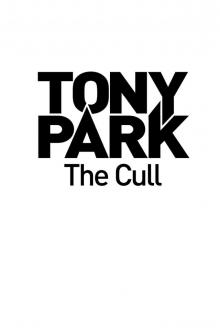 The Cull
The Cull Blood Trail
Blood Trail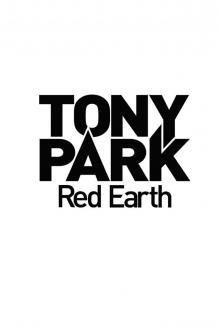 Red Earth
Red Earth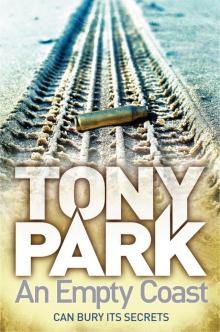 An Empty Coast
An Empty Coast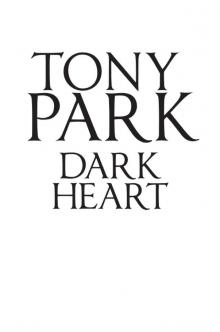 Dark Heart
Dark Heart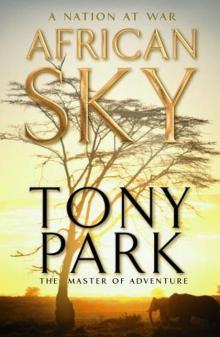 African Sky
African Sky The Delta
The Delta Captive
Captive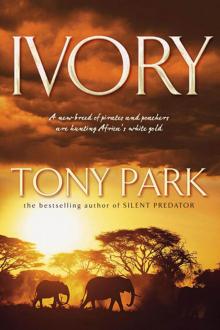 Ivory
Ivory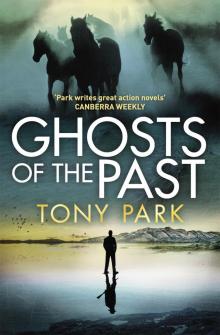 Ghosts of the Past
Ghosts of the Past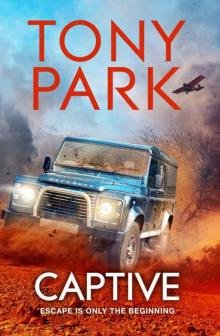 Captive_A High-octane And Gripping African Thriller
Captive_A High-octane And Gripping African Thriller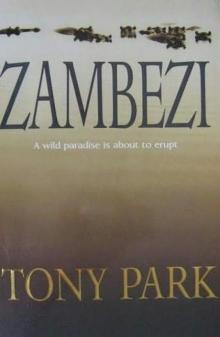 Zambezi
Zambezi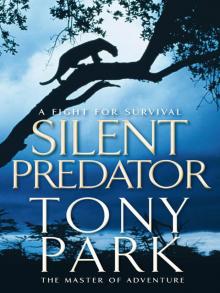 Silent Predator
Silent Predator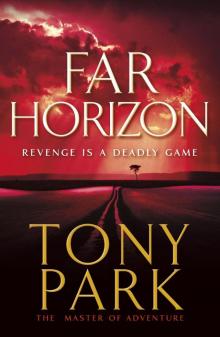 Far Horizon
Far Horizon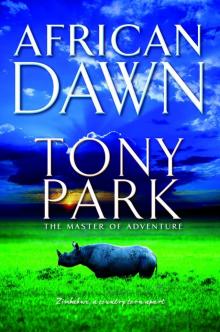 African Dawn
African Dawn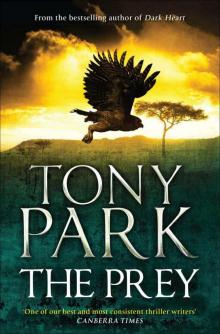 The Prey
The Prey Safari
Safari